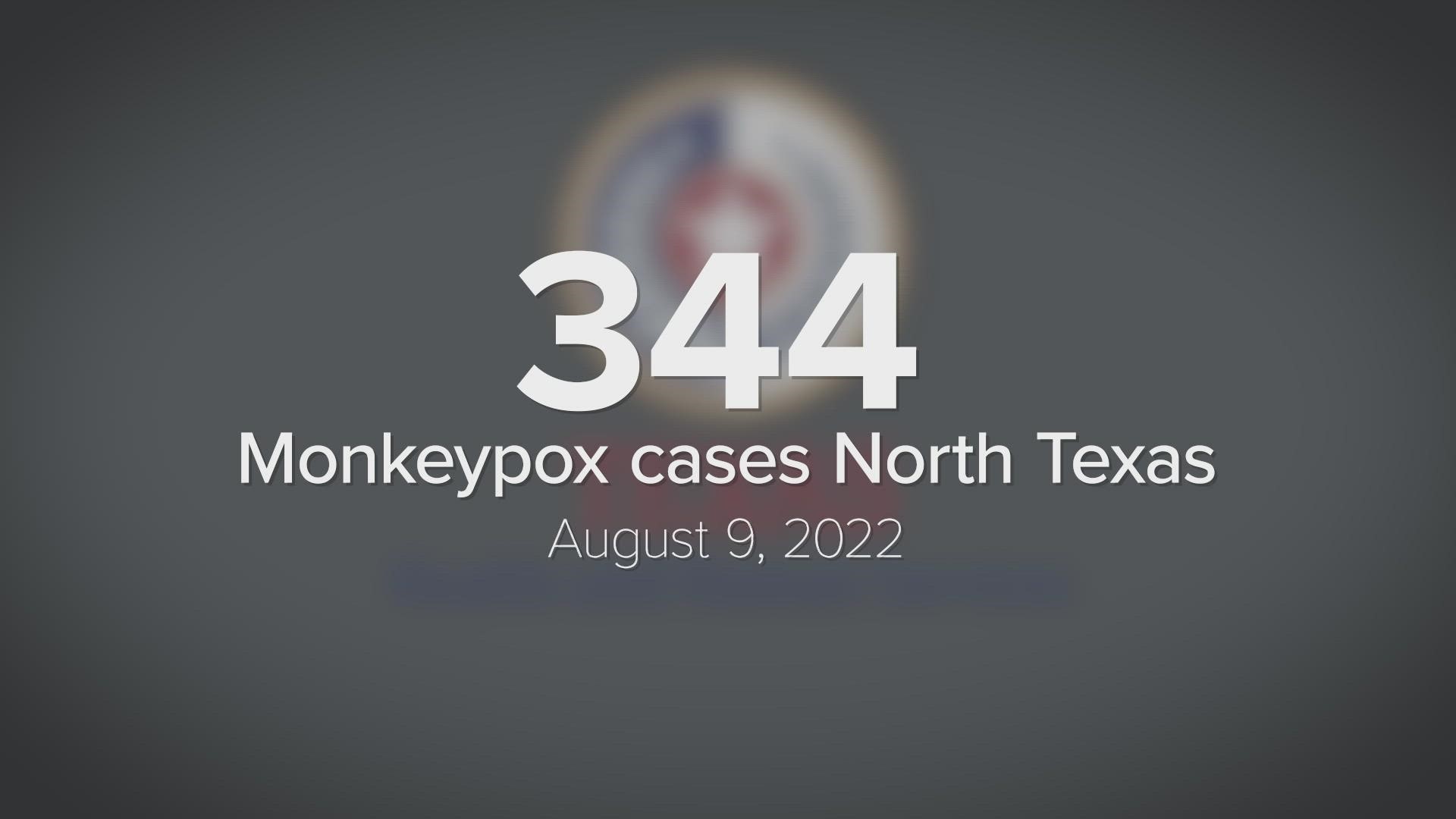DALLAS — As Texas and much of the United States continue to see significant percentage increases in the number of monkeypox cases, federal agencies are ramping up the availability of vaccines. At the same time, local universities are making sure students have the basic information they need as they return to the news of yet another worrisome virus.
"Let me begin with what I've said before: Every American should take monkeypox seriously," said Xavier Becerra, Secretary of Health and Human Services during a Tuesday afternoon virtual news conference by the White House Monkeypox Response Team.
As he announced that, the number of confirmed infections in the U.S. has risen to 8,900, a growth rate that he said could outpace available vaccine supplies, he announced a change in the way the JYNNEOS vaccine can be administered. The Food and Drug Administration (FDA) has granted Emergency Use Authorization (EUA) for the JYNNEOS vaccine to be administered intradermally.
"To allow vaccine providers to use an existing one dose vial of the vaccine to administer a total of up to five separate doses," said Dr. Rochelle Walensky, Director of the Centers for Disease Control and Prevention.
"The is very welcome news in our fight against monkeypox," added Becerra.
The FDA also authorized use of the vaccine, using the standard dosing route, in individuals younger than 18 years of age determined to be at high risk of monkeypox infection.
Also Tuesday, Texas Health and Human Services announced the number of monkeypox cases in the state had grown to 701, representing a 26% increase over just five days ago. Also, 344 of those cases are in the north Texas public health region, representing a 33% increase over the HHS last release of monkeypox totals.
As for back-to-school concerns, most north Texas colleges and universities have added monkeypox warnings and advice on their health center websites as they did, and continue to do, for COVID. TCU, SMU, UT Arlington and UT Dallas each direct students to locations and health departments where they can receive testing and treatment. UT Dallas sent an email – on the topic of health -- to all UT Dallas students, faculty and staff Tuesday morning.
TCU statement:
"TCU is dedicated to supporting the health and safety of our campus community. We will continue to work with health authorities for guidance and recommendations on how best to support our students' health and well-being. Information for students about monkeypox may be found on our student health center website. Our health center provides monkeypox testing, and is prepared to support students as they return to campus."
SMU statement:
"SMU works closely with our county and state health officials in managing infectious diseases such as monkeypox. To date, no cases have been reported on our campus. The University will continue to monitor the situation and collaborate with our health partners on guidance and response protocols.
Information about symptoms, transmission and prevention can be found through links on the Dr. Bob Smith Health Center website. Testing of symptomatic individuals can be conducted at the health center. Vaccination inquiries will be referred to Dallas County Health and Human Services."
UTA statement:
"UT Arlington has strong, established relationships with local and state health authorities and will continue to look to those entities, as well the UT System, for appropriate guidance and recommendations. We also will provide our student community with accurate health information about monkeypox through our Health Services website prior to the fall semester, and our health promotions team has specific guidance to accurately answer any questions from students during any planned outreach or programs on campus. The university has confirmed it has the capability to test symptomatic individuals and is well versed in quarantine and isolation protocols, given the events of the last two-plus years. Should the need arise, we would follow public health guidance on quarantining."
UT Austin is doing much the same, while admitting online that:
"Just as we have seen with other communicable diseases, we expect campus to mirror the community with the incidence of this virus."

